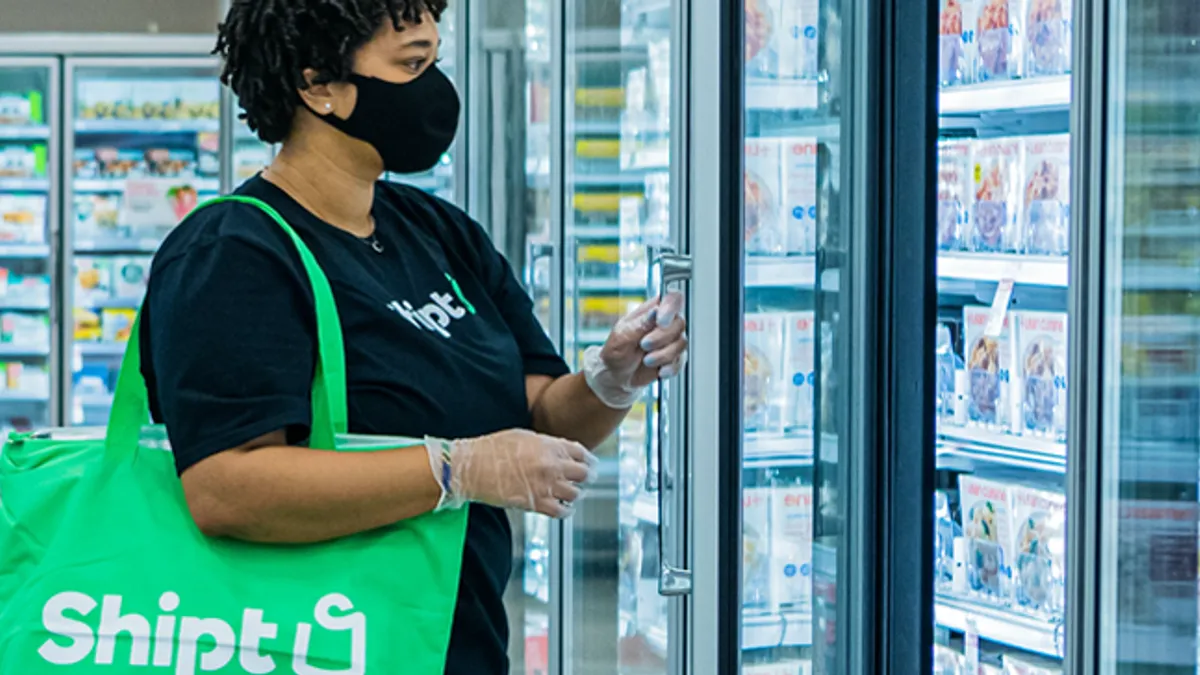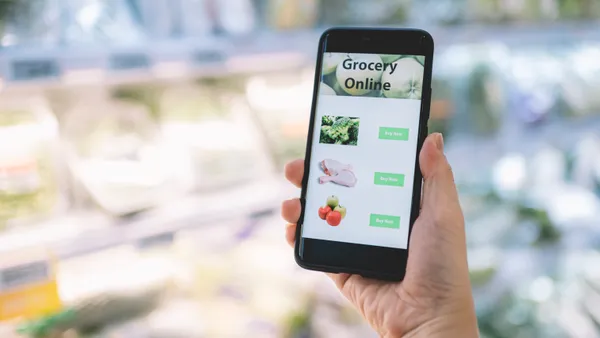As Chief Business Strategy Officer at Shipt, my team and I work closely with—and learn alongside—our grocery partners every day.
While 2020 was an anomaly in many ways, we believe that next year, certain consumer behaviors observed this year will continue to impact the grocery business model. Between fewer customers panic buying at grocery stores, an expected influx of in-person dining pending the distribution of a vaccine, and a growing number of consumers who've discovered they prefer online ordering to in-person shopping, we know that a diversified e-commerce, multi-marketplace strategy will be essential to retain and recapture customers for whatever 2021 and beyond may throw at us.
Why E-Commerce Matters for Grocers Today
In today's environment, e-commerce is a necessary component of any grocer's broader omnichannel strategy. Simply put, relying on traditional in-store engagement tactics will no longer suffice.
In years past, the grocery sector has experienced challenges adopting e-commerce strategies. Today, however, grocery e-commerce is growing rapidly. Previously, retail experts predicted a 15% e-commerce penetration for grocery in 2020. Today, in part due to the pandemic, this will happen much sooner; Morgan Stanley Research even raised their U.S. e-commerce estimates by roughly 10% for both 2020 and 2021 in recent months. With that, it's clear that e-commerce and delivery is here to stay given ongoing consumer purchasing preferences, signaling that grocers who have not already implemented e-commerce shopping options should get set up as soon as possible to maximize sales.
Many grocers have already embraced and executed a diverse e-commerce strategy (i.e. providing consumers with options for in-store shopping, curbside pickup and same-day delivery), including Meijer, Kroger, H-E-B, Hy-vee and Weis Markets. Each has partnered with Shipt on delivery - leveraging our personalized, high-touch partnership to enhance their delivery capabilities - while using several other fulfillment components to diversify their broader strategies.
While the benefits of e-commerce are clear, there is no one-size-fits-all approach. Here are a few considerations to take into account when building an effective e-commerce strategy for your brand and customer base.
Putting Strategy into Action:
- Join third-party marketplaces to tap into existing customer bases
To increase customer loyalty and drive incremental sales, partner with third-party delivery services. Today, we're observing a growing number of grocers taking a platform-agnostic approach to increase visibility with customers. For example, when a grocer works with multiple same-day delivery service partners, they automatically access the membership bases of those partners, which further drives brand awareness via their online marketplaces and puts the power of choice back on the consumer.
In working with Shipt and other providers, grocers can meet consumers (and importantly, platform members) where they are and drive sales via multiple e-commerce channels.
- Stand up your own branded e-commerce capabilities
Stores should also consider building out a delivery-only fulfillment option for consumers, which is a great way for grocers to utilize their existing in-store workforce while simultaneously enhancing their e-commerce brand. For example, with Shipt's delivery-only service Shipt Driven, customers place an order through the grocer's website and request a delivery timeframe. That order is then picked up and delivered by a Shipt Shopper, allowing grocers to utilize staff in a strategic way while letting Shipt handle the last-mile delivery needs.
And let me just say: this approach works! This year alone, our Shipt Driven offering grew by more than 240 percent, including a 40 percent increase in the number of partners leveraging this option.
- Implement new technologies to support operations
At Shipt, we believe technology without the human element is irrelevant for our future. While some are interested in using robots to complete and deliver orders, Shipt understands how personal shoppers can enhance a grocer's business.
That said, emerging technology can and should be leveraged to enhance overall operations and support in-store workers and personal shoppers. Augmented Reality (AR) has proven to be especially helpful in the grocery store setting, as it can help grocers and their same-day delivery service partners understand the most efficient way for personal shoppers, like Shipt Shoppers, to walk through a store.
Regardless of a grocer's individual strategy, e-commerce should be a vital component. It's time to meet customers where they already are—not where we want them to be—via a diversified e-commerce approach.
At Shipt, our mission is to create mutually beneficial partnerships with grocers. Our business model was built around providing an amazing fulfillment experience in partnership with retailers; no matter what lies ahead, that will always be the case.










